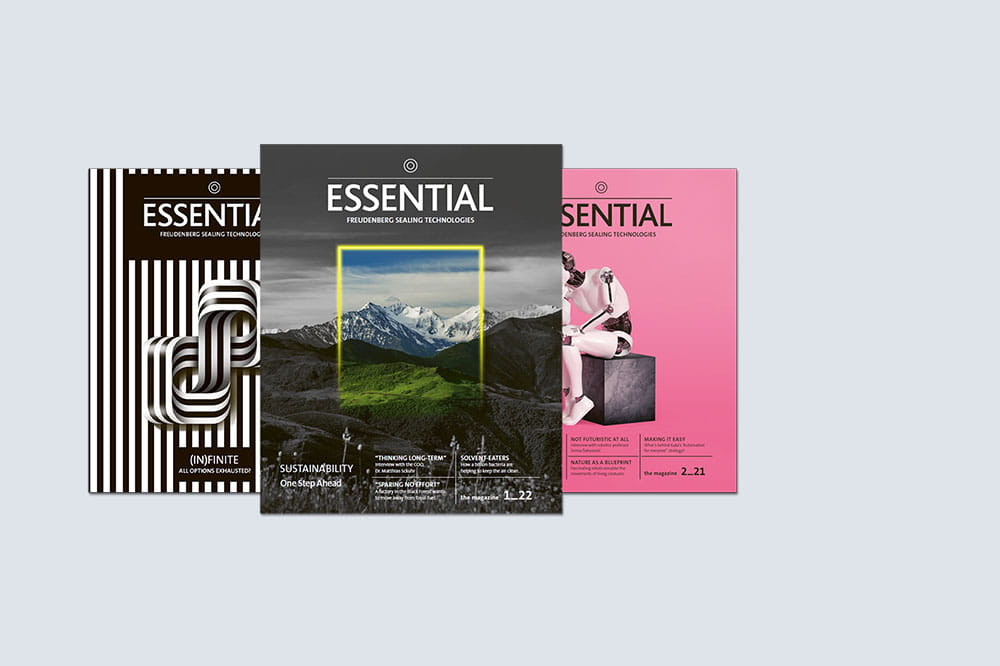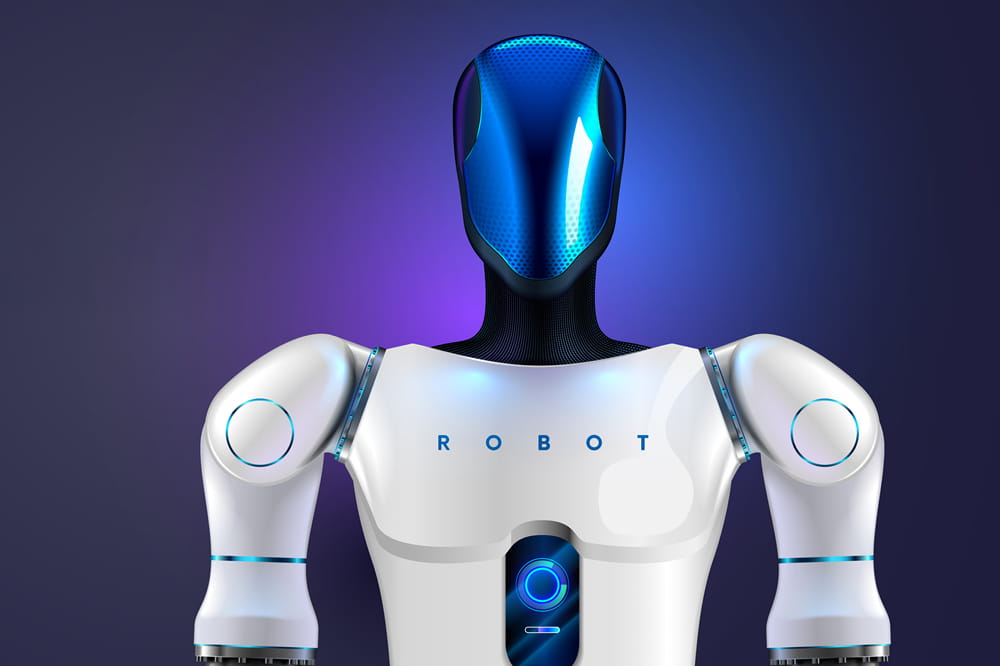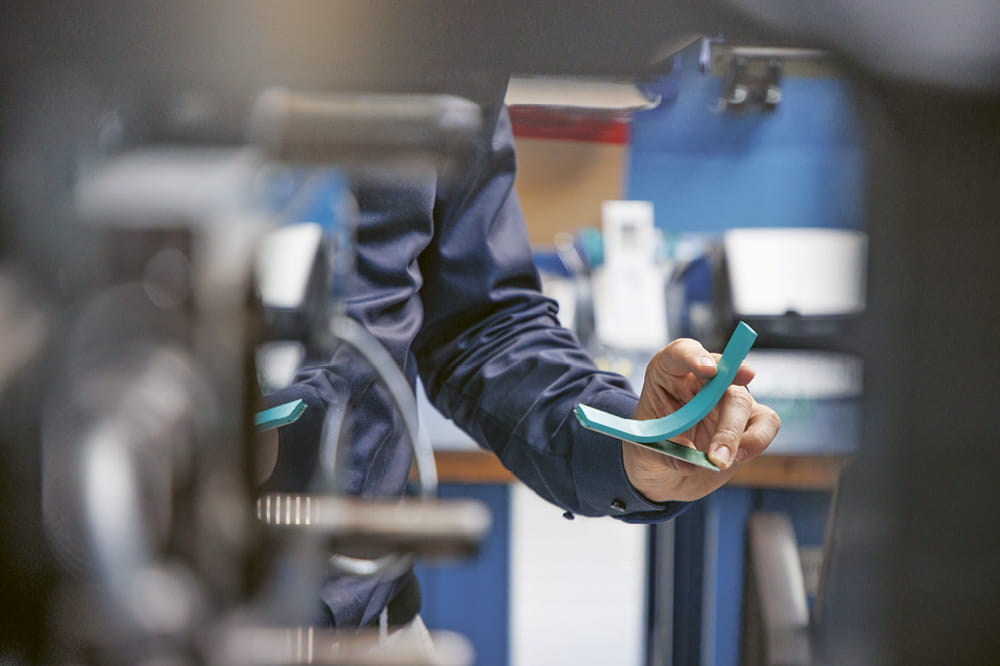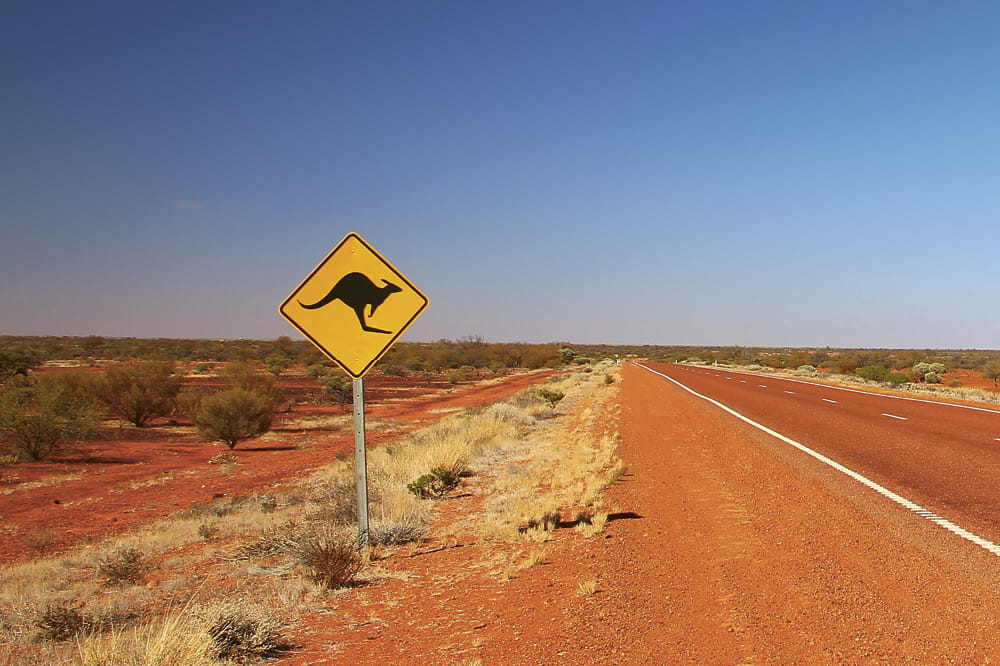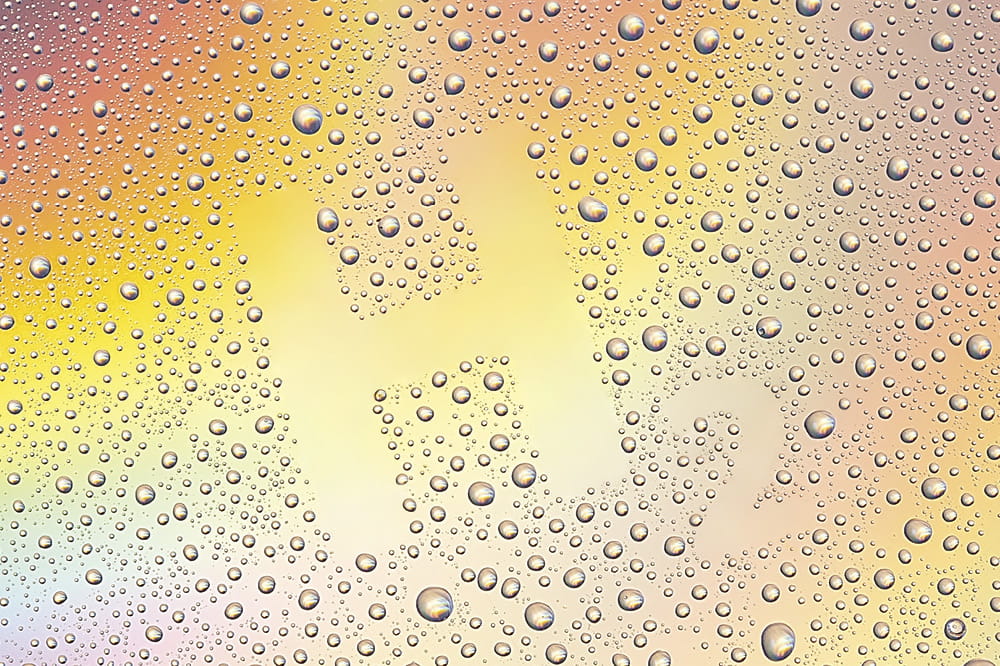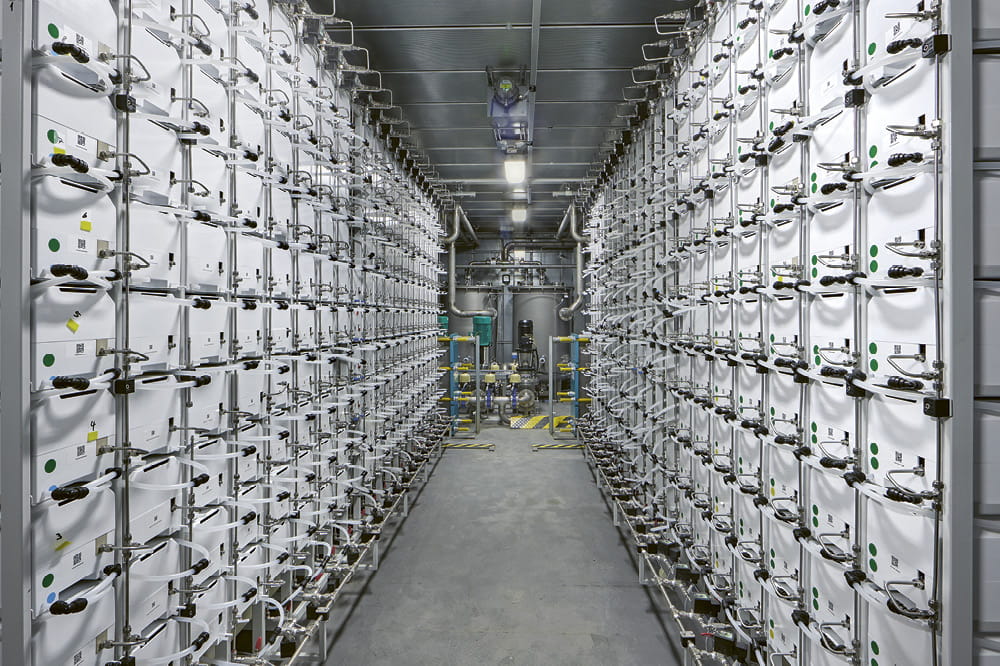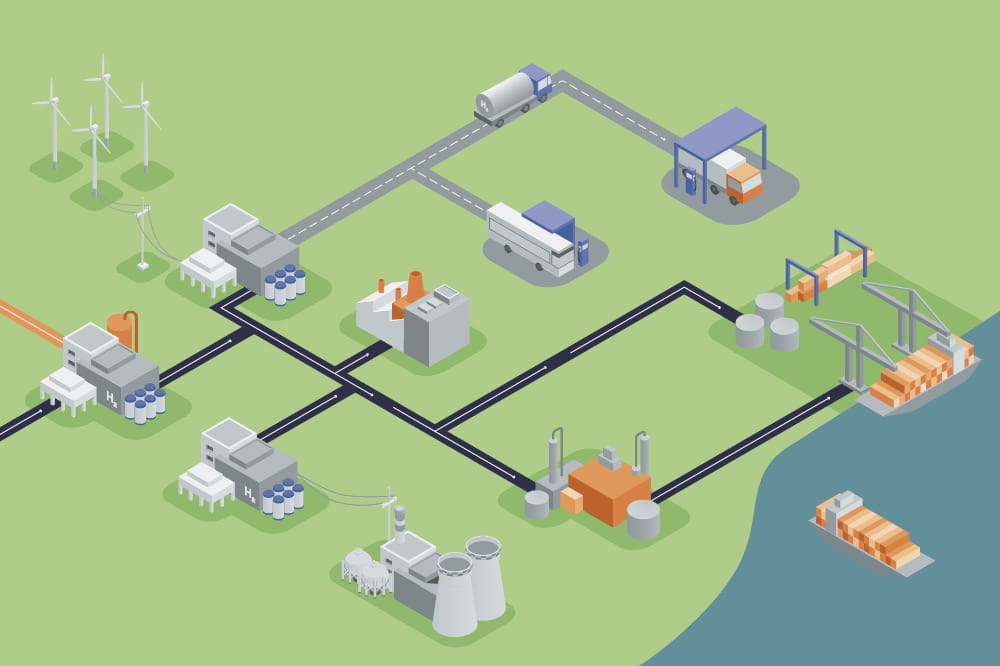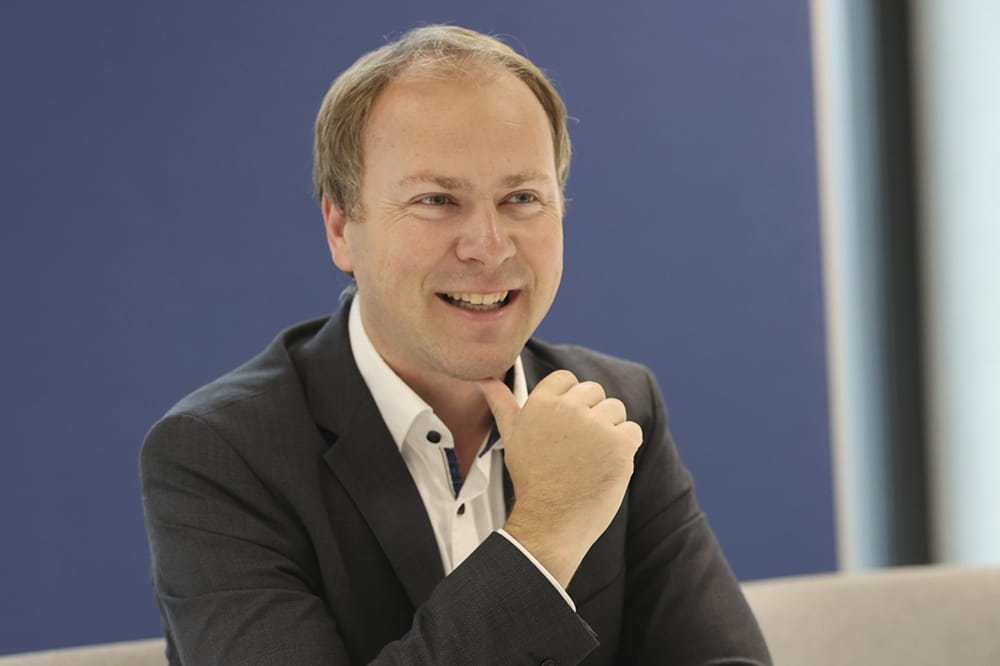Obtain news and background information about sealing technology, get in touch with innovative products – subscribe to the free e-mail newsletter.
One Step Ahead
Any prudent company thinks about tomorrow. It plans ahead and doesn’t sabotage its foundations with overexploitation. Sustainability involves more than ecology. It maintains complex systems: society, nature, and the economy. How can we all be sustainable? How do we conserve energy? Resources? Let’s think holistically and stay one step ahead.
An Essay by Claus Möhlenkamp, Chief Executive Officer, Freudenberg Sealing Technologies
People say sustainability is becoming “more and more important.” I personally believe that statement is inaccurate. Sustainability has always been important. Perhaps we didn’t notice this. Or we didn’t consciously give the concept a name. It is in any company’s best interest to think about tomorrow and to ensure that its business model will continue to function in the future, to look ahead and steer clear of ruinous exploitation that would ultimately undermine its opportunities. The term “sustain,” the notion of keeping a functioning system up and running, is embedded in the word. Not just thinking about the next step, but maybe even the one after that. Always being a step ahead.
Weighty: On stock exchanges, more and more attention is being paid to ecological and social criteria as well as good governance. At the end of 2021, the total assets of sustainable funds came to about $4 trillion U.S.
If you keep selling the same product until it is outmoded, if your company doesn’t look at the future and see the technological upheavals on the horizon, if your employees overwork continually and deliberately, you may earn a shortterm profit, but you will get a long-term problem in return. The same applies to farmers who overfertilize and erode their fields until they can no longer be farmed. From a purely economic standpoint, all of this might not seem very serious as long as new employees, fields and resources are available. And, let’s be honest: That is exactly how some people and entire companies have operated in the past – with the attitude that there is always more of something available. But we now see that this is not the case. If you treat people and resources as disposable, problems will catch up with you. Natural catastrophes, poverty, wars. The damage can be huge. Since the problems have many causes, we often overlook inter-connections and don’t feel responsible for them.
That’s exactly the problem: The economy, society and nature are complex systems. The science of sustainability describes what is happening today as “nonlinear interactions” that lead to emergent phenomena, that is, consequences that are in part unforeseeable. For example, they could involve changes in the Gulf Stream as a result of climate change. Or successful battles against illnesses could quickly lead to antibiotic resistance. Every company is likely familiar with unanticipated consequences from their daily operations. Decisions that seem to make sense at first suddenly cause a problem in an entirely different area. To maintain a complex system over the long haul, you have to keep making adjustments to it, repositioning it, and questioning the direction you are taking.
Those who treat people and resources as throwaways create problems that will come back to haunt them.
Claus Möhlenkamp, Chief Executive Officer, Freudenberg Sealing Technologies
By the way, all of this suggests that nothing is going to change if sustainability is purely seen as a marketing concept. Companies should not look for pretexts to declare their products “sustainable” just to attract new customers. That’s not the right way to look at this. The meaning of sustainability threatens to blur if it becomes window dressing or a promotional cliché. Nothing you do is sustainable if it is done casually or superficially.
Multifaceted: There is more to sustainability than reducing CO2 emissions. That is clear from the 17 goals for sustainable development that the United Nations formulated in 2015.
With its 17 Sustainability Goals, the United Nations has made clear how comprehensively it views sustainability: The battle against hunger and poverty fall under the rubric of sustainability. So do more education, less inequality, better quality of life, a robust infrastructure and the idea of sustainable urban planning. In public debate, the term sustainability is too readily limited to what is generically known as “green.” It is actually more than that. “Sustainable development is development that meets the needs of the present without putting the ability to meet the needs of future generations at risk,” the UN’s famous Brundtland Commission on Environment and Development stated in 1987. That has been the most common definition of sustainability to date. The term “needs” is well-chosen. It highlights how quickly ill-considered acts can lead to a lack of basic necessities. It underscores something else as well: the fact that we are talking about all of humanity. Sustainability is a project for humankind.
Freudenberg Sealing Technologies has taken up the cause of reducing its carbon dioxide emissions by 30 percent by 2025 when compared to 2020 levels, in terms of tons of CO2 per million euros of revenue. This requires taking a holistic approach: eliminating waste, reducing energy consumption or employing alternative forms of energy, adopting sustainable materials, and using water more efficiently. We want to conserve resources ourselves – even as we develop products and solutions that help our customers operate more sustainably. Incidentally, the example shows that sustainable actions have a certain domino effect. We all influence one another. The stories in this issue of ESSENTIAL explore just how multifaceted sustainability is, what projects are already underway and why it pays to be thinking at least one step ahead.
ESSENTIAL – the Magazine
Don’t Miss a Trend
Smart sealing solutions for nearly every sector, technology trends and exclusive interviews – Find them in our company magazine ESSENTIAL with a print subscription and digitally.
More Stories About Sustainability

Join Us!
Experience Freudenberg Sealing Technologies, its products and service offerings in text and videos, network with colleagues and stakeholders, and make valuable business contacts.
Connect on LinkedIn! open_in_new


